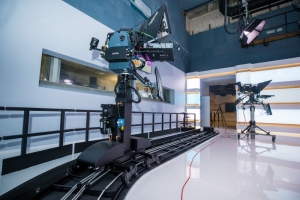Legislation, Lithuania, Markets and Companies, Telecomunications, Wages
International Internet Magazine. Baltic States news & analytics
Friday, 26.04.2024, 09:34
80 Lithuanian MPs ask additional questions to the broadcaster LRT
 Print version
Print version |
|---|
Parliamentary Vice-Speaker Arvydas
Nekrosius of the ruling Lithuanian Farmers and Greens Union, one of the
persons behind the address, says that the answers provided by LRT two weeks ago were not thorough
enough.
"We asked the LRT council to
provide more information to the answers to the questions it already answered.
Many of the questions asked earlier were not answered or answered
insufficiently. The questions were this time signed by representatives of
nearly all political groups," Nekrosius told BNS on Wednesday.
A few weeks ago, LRT answered
questions submitted by 66 parliamentarians about the national broadcaster's
public procurement, selection of content created by producer companies,
employee salaries and the work specifics of the LRT council. LRT said it
could not provide some of the information in connection to producer companies
and LRT audit results due to
confidentiality requirements.
With the new inquiry, the parliamentarians advise the LRT Council to turn to the producer companies and the audit company
for a sanction to disclose the information.
LRT Council chairman Zygintas Peciulis told BNS on Wednesday
he had not yet received the questions, therefore, could not comment on them.
LRT currently
operates three television channels, three radio channels and a news portal.
State allocations to the national broadcaster stood at nearly 33.7 million
euros in 2016 and at 36.5 million euros this year, which makes the bulk of the
national broadcaster's budget. Commercial advertisement, excluding cultural and
education information, is banned on LRT
since January of 2015, the date LRT
receives funding from the national budget only.
LRT CEO Audrius Siaurusevicius has told Ziniu Radijas radio channel that the
politicians questioning the transparency of LRT
operations and finances could be unhappy with the work of the national
broadcaster's journalists.








 «The Baltic Course» Is Sold and Stays in Business!
«The Baltic Course» Is Sold and Stays in Business!

